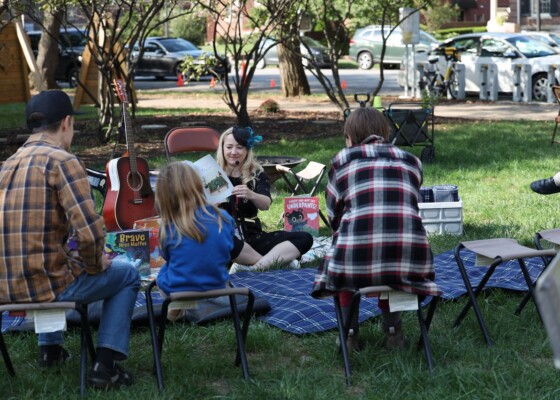Bountiful Harvest
July 6, 2010Through a series of happy coincidences, I was invited to join Keira Amstutz, President of the Indiana Humanities Council, to accompany her on a trip to our own Fair Oaks…
Through a series of happy coincidences, I was invited to join Keira Amstutz, President of the Indiana Humanities Council, to accompany her on a trip to our own Fair Oaks Farm. A bastion of what modern farming can be Fair Oaks is a sprawling dairy complex in the northwestern quadrant of our fine state that, I am told, manages to produce enough milk to serve one glass of fresh milk to every citizen living within a not insignificant radius each day every year. Including cities like Indianapolis, Chicago, Milwaukee and Detroit – that number mounts into the tens of millions. Likewise, they produce some of the most honored craft cheeses found on the planet.
Our mission was to talk with the amiable operator of the massive facility, Gary Corbett, about the Council’s much-lauded biennial program Food for Thought. A Hoosier farm-boy myself, the span of my life presided over abundant changes in American agriculture. Families, unable to compete with rising costs and restrictive government management of farms, started with second (or third) jobs away from the homestead to earn enough hard currency to pay taxes and afford the now-assumed basics of the modern age. Even as we watched a calf being born at Fair Oak’s amphitheater-like room reserved for entertaining school children of how the miracle of birth and continued service of domesticated animals sustains even our modern lives, I was reminded that agriculture is just that – culture.
We Hoosiers benefit from a deeply rooted and storied past of producing sustenance. We feed ourselves; and we feed the world. But, do we remember in the age of satellite broadcasts and global warfare that the Earth, and those who encourage her bounty, provides a way of living as much as she provides life itself? The culture of sharing bounty assuredly may be our greatest heritage.
Written by Terry Anker, a member of the Indiana Humanities Council board of directors, and chairman of The Anker Consulting Group.


